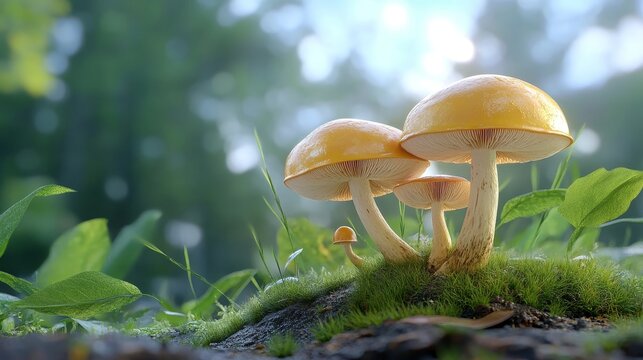The Fascinating World of Mushrooms: Nature’s Hidden Gems

Mushrooms, often overlooked in the natural world, are truly nature’s hidden gems. These fascinating fungi come in a stunning array of shapes, sizes, and colors, each with its unique role in the ecosystem. From their ecological importance to their diverse applications, mushrooms are more than just an ingredient in your favorite dish—they are a marvel of nature. Let’s delve into the intriguing world of mushrooms and discover what makes them so extraordinary.
The Diversity of Mushrooms
Mushrooms are incredibly diverse, with over 10,000 known species and potentially many more yet to be discovered. They range from the edible varieties we enjoy in our meals, such as shiitake and porcini, to the more unusual and sometimes toxic species like the fly agaric with its iconic red cap and white spots. Each species has its own unique characteristics and plays a specific role in its environment.

One of the most fascinating aspects of mushrooms is their structure. The cap, gills, and stem of a mushroom are designed to facilitate the reproduction and spread of spores, which are the fungal equivalent of seeds. These spores can travel through the air and, when they find a suitable environment, germinate into new fungal growths. This complex lifecycle is a testament to the adaptability and resilience of mushrooms.
Ecological Importance
Mushrooms play a crucial role in ecosystems as decomposers. They break down organic matter, recycling nutrients back into the soil and helping maintain ecological balance. This decomposition process is vital for the health of forests, gardens, and agricultural fields.
In addition to their role in decomposition, some mushrooms form symbiotic relationships with plants through a process known as mycorrhization. These mushrooms connect with plant roots and enhance nutrient absorption, benefiting both the fungi and the plants.
Culinary and Medicinal Uses
Beyond their ecological contributions, mushrooms are also valued for their culinary and medicinal properties. Edible mushrooms like portobello, enoki, and maitake are celebrated for their rich flavors and versatility in cooking. They are used in a variety of dishes, from soups and stews to stir-fries and salads.
Medicinal mushrooms, such as reishi and chaga, have been used in traditional medicine for centuries and are known for their potential health benefits. They are believed to support the immune system, reduce inflammation, and even improve mental clarity. Modern research continues to explore their therapeutic potential.
Explore the Enchantment of Mushrooms
Whether you’re an avid forager, a culinary enthusiast, or simply a nature lover, mushrooms offer endless fascination. Their diverse forms, essential ecological roles, and potential health benefits make them a remarkable subject of study and appreciation.
Next time you’re out in nature or browsing through a farmer’s market, take a moment to admire the variety and beauty of mushrooms. They’re a testament to the wonders of the natural world and a reminder of the many hidden gems waiting to be discovered.
Stay tuned for more insights into nature’s marvels and the extraordinary world around us!






